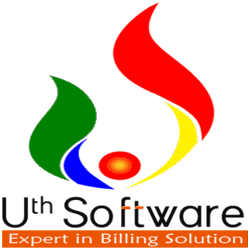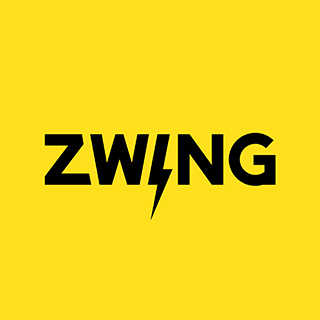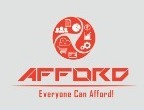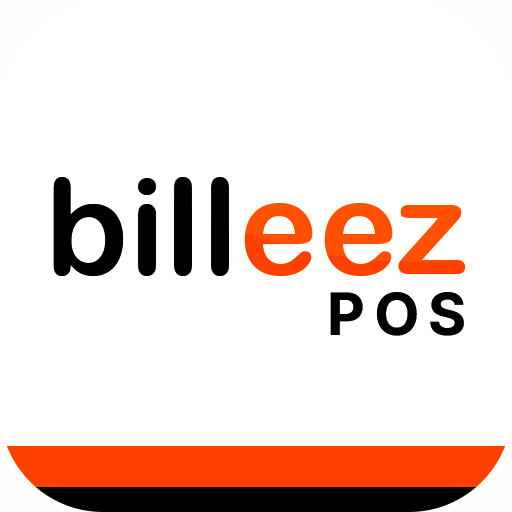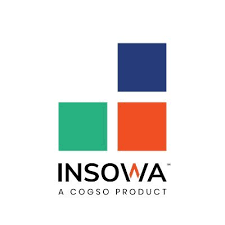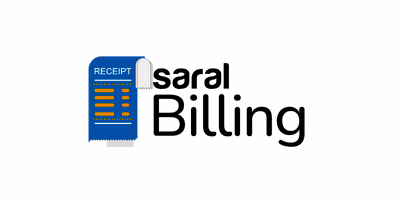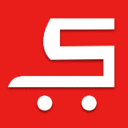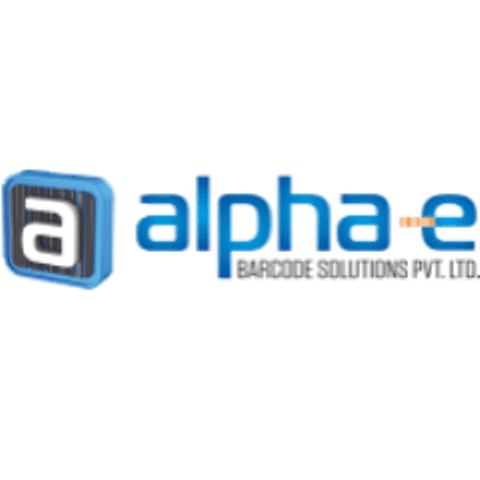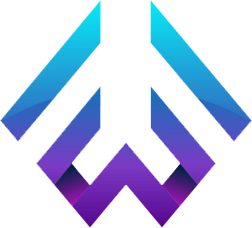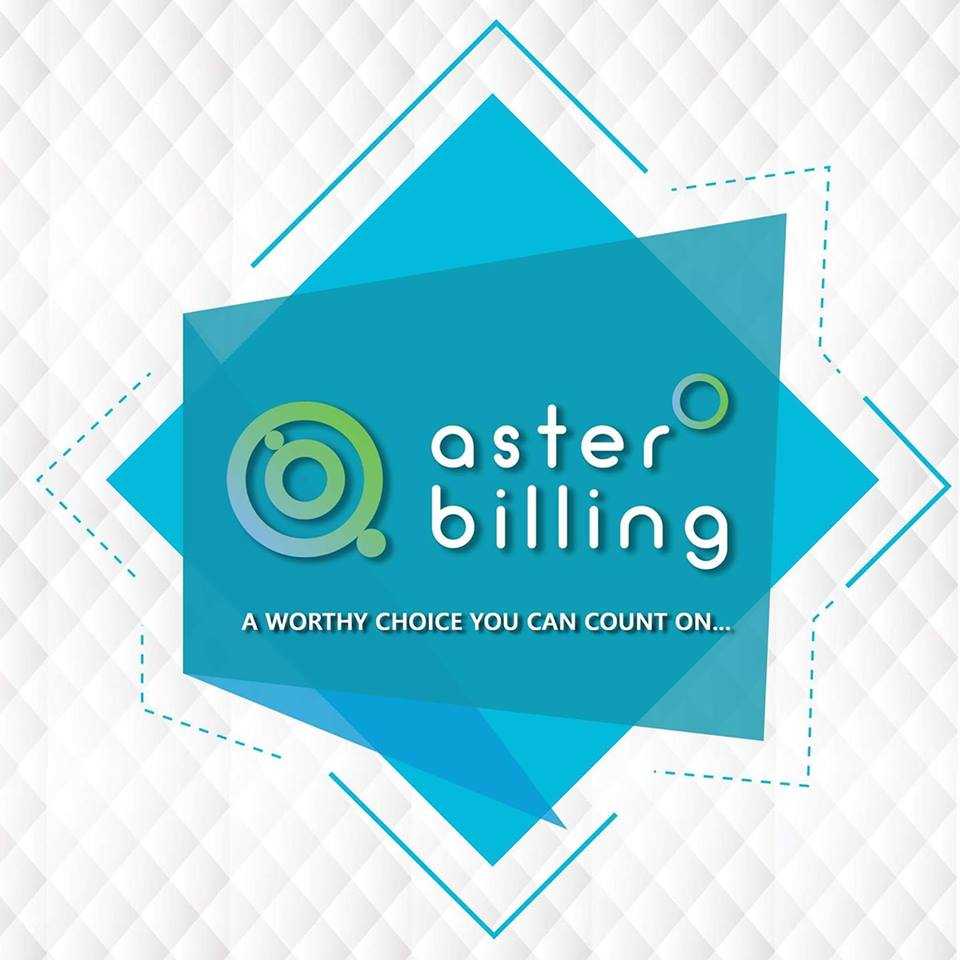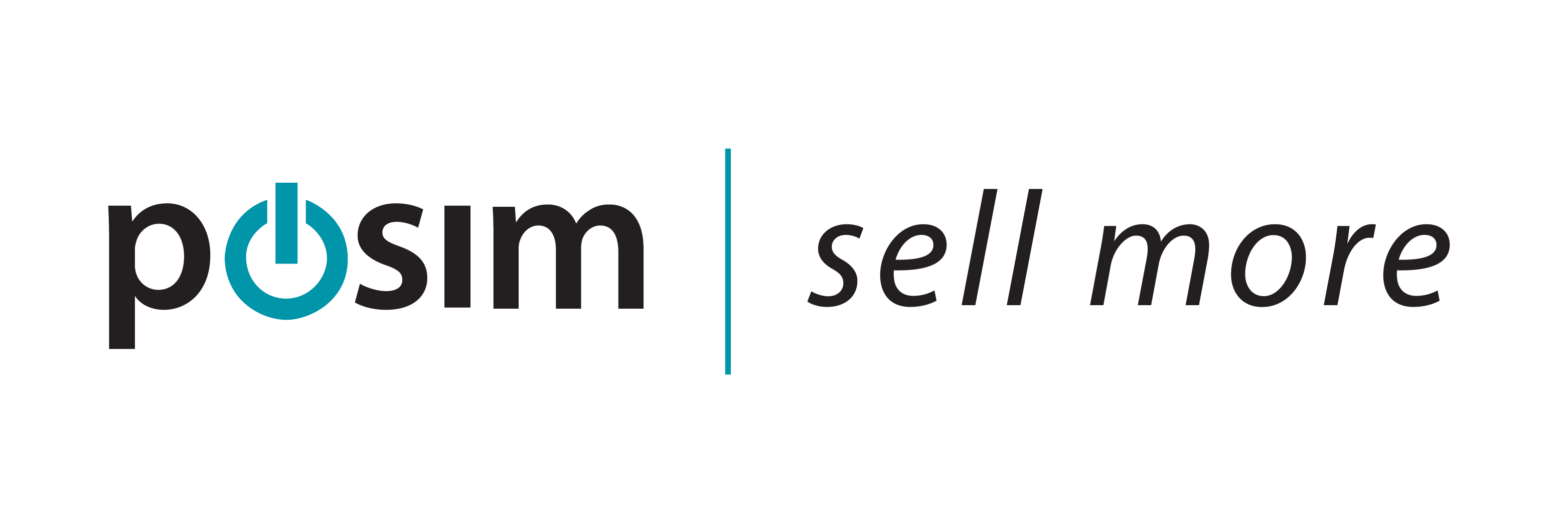Yes, most retail billing software nowadays is cloud-based, allowing access from a variety of devices and platforms. Users can access their data and complete billing duties from their desktops, laptops, tablets, and cellphones. The app is compatible with Windows, Mac OS, Android, and iOS devices. This is convenient and flexible for retailers, particularly those who need to manage their businesses on the go.
List of 20 Best Retail Billing Software
Uth Supermarket solution for all your retail requirements. Our advanced software seamlessly integrates retail POS and billing systems to efficiently manage serialized inventory in supermarkets, groceries, hypermarkets, and convenience stores. Simplif...Read More Uth Supermarket
ZWING solution for managing your retail store. With its lightning-fast POS billing and seamless inventory management, ZWING streamlines all your store operations. Our Cloud POS is user-friendly and customizable, allowing you to effortlessly manage yo...Read More ZWING
Zadinga is a shop management app that revolutionizes how retailers handle their business. Streamline inventory management, simplify billing and checkout, collect payments with ease, and even create an online store with local delivery options. Say goo...Read More Zadinga
Qsale POS is a solution for managing sales, inventory, and accounts for restaurants, retail stores, and other businesses. With its user-friendly cloud-based system, Qsale streamlines operations and enhances efficiency within a matter of hours. Whethe...Read More Qsale POS
AFFORD RETAIL solution for small and medium retailers. Our software comes equipped with multi-store functionality and supports various countries. Our easy-to-use POS system streamlines brick-and-mortar store management, while also offering integrated...Read More AFFORD RETAIL
Billeez is a solution for retail stores and shops seeking Point of Sale (POS) application. Our highly efficient POS app is custom-designed to meet the evolving needs of retail businesses. Through seamless integration and advanced features, it optimiz...Read More Billeez
Invoay SimplePOS solution for all your retail management needs. From appointment scheduling and staff management to payments and customer retention, this comprehensive software simplifies every aspect of your business. Elevate your operations, attrac...Read More Invoay SimplePOS
INSOWA Retailers is a Cloud-based SaaS solution tailored for Pharma, FMCG, Laundry & Dry cleaning industries. Simplify your operations with efficient Billing, Inventory, Order, and Client management capabilities. Seamlessly connect with leading payme...Read More INSOWA Retailers
Billing360 is a solution for precise and efficient billing procedures. Say farewell to scattered data and hello to informed decision-making with our streamlined software. Boost revenue and minimize time-to-cash with Billing360, eliminating the possib...Read More Billing360
ZipBooks Accounting solution for simplifying your financial tasks. Our innovative cloud-based platform offers time tracking, online invoicing, project management, and automated billing, making it easier than ever to stay organized and keep accurate r...Read More ZipBooks Accounting
Saral Billing, and all-in-one solution for all your product billing and inventory management needs. Perfectly designed for the trading industry, it caters to the requirements of wholesale, distribution, and retail businesses. Simplify your billing an...Read More Saral Billing
Experience seamless retail management with Shubhra Retail Management software solution for all your offline management needs. This all-in-one tool offers features like billing, inventory management, user authentication, and advanced reporting capabil...Read More Shubhra Retail Management
OptoSoft Optical is the leading software solution for optical retailers, designed for both individual outlets and multi-chain stores. Offering a comprehensive range of features, it is the best choice for efficiently managing your stores optical requi...Read More OptoSoft Optical
Smart POS - Jewellery is a software solution for small and medium sized jewellery stores. Our competitively priced software provides a user-friendly and efficient way to run your shop. Experience all the features, such as chit and scheme management,...Read More Smart POS - Jewellery
MunimJi is solution for retail businesses. This powerful software simplifies your operations with advanced search capabilities, a user-friendly interface, and personalized solutions. Its invoicing features streamline processes and increase accuracy,...Read More MunimJi
Alpha Retail Billing - the top accounting software for the retail sector. Simplify your accounting processes and create polished invoices and reports in multiple formats. Alpha has everything you need, from managing accounts to generating reports. Sa...Read More Alpha Retail Billing
Ivy Retail Execution solution for optimizing your retail processes. Eliminate the hassle of store setup, inventory management, ordering, and payment collection. Our software guarantees precise reconciliation of product quality and daily collections...Read More Ivy Retail Execution
WeBFooT SMART RETAIL solution for streamlining operations in the retail and hospitality industry. Our robust software offers both offline and online capabilities, catering to businesses with varying internet speeds. With its advanced digitization and...Read More WeBFooT SMART RETAIL
ASTER BILLING - the ideal choice for small and medium-sized retailers. Our software stands out among other GST billing platforms with its user-friendly and effective design. It is specifically developed for easy understanding and usage, even for non-...Read More ASTER BILLING
POSIM is a point-of-sale and inventory management software for increasing your sales potential. Our experienced team is committed to providing you with top-of-the-line solutions and support to help you reach your business objectives. With POSIM, effi...Read More POSIM
Learn More About Retail Billing Software
- What Is Retail Billing Software?
- What Are The Recent Trends In Retail Billing Software?
- Benefits Of Using Retail Billing Software
- Important Factors To Consider While Purchasing Retail Billing Software?
- What Are The Key Features To Look For In Retail Billing Software?
- Why Do Businesses Need Retail Billing Software?
- How Much Time Is Required To Implement Retail Billing Software?
- What Is The Level Of Customization Available In Retail Billing Software?
- Which Industries Can Benefit The Most From Retail Billing Software?
- Conclusion
What Is Retail Billing Software?
Retail billing software, often known as point-of-sale (POS) software, is a type of computer application created expressly to manage and streamline the billing process in retail enterprises. It often incorporates inventory management, sales analytics, and customer relationship management, making it an indispensable tool for today's merchants. One of the primary advantages of retail billing software is its ability to streamline and speed up the checkout process.
This software allows transactions to be completed fast and accurately, lowering the chance of human error and increasing overall consumer satisfaction. It also accepts a variety of payment methods, such as credit and debit cards, mobile wallets, and gift cards, offering clients a convenient and flexible payment experience. Another important feature of retail billing software is its inventory management capabilities.
It allows shops to monitor stock levels, receive notifications for low inventory, and automate replenishment procedures. This function helps to avoid stockouts and overstocking, resulting in cost savings for the firm. Furthermore, retail billing software provides detailed sales analytics, which can provide significant insights into the company's success.
It enables merchants to examine sales data and detect trends, popular products, and client purchasing patterns, allowing them to make more educated business decisions and optimize their sales tactics. Additionally, retail billing software includes customer relationship management capabilities that allow businesses to keep a database of client information, such as contact information, purchase history, and preferences.
This capability enables organizations to personalize their marketing activities, improve client satisfaction, and boost customer retention. Before choosing retail billing software, a few key considerations to consider include security, ease of use, compatibility with existing systems, and scalability. To assure the software's performance and security, find a trustworthy source with outstanding customer service and regular software updates.
What Are The Recent Trends In Retail Billing Software?
In recent years, the retail business has seen substantial shifts in consumer behavior and technological innovation. This has resulted in a development of retail billing software, which currently includes more new features and functionalities than ever before.
As a buyer, you must grasp these recent trends in retail billing software to make an informed selection regarding the best option for your company.
1. Cloud-Based Solutions: The retail industry is transitioning to cloud-based solutions, which enable firms to access billing software from anywhere and at any time. This not only boosts productivity, but also lowers maintenance expenses and improves data security.
2. Mobile Integration: With the development of smartphone usage, retail billing software now includes mobile integration, allowing users to complete transactions and access data while on the go. This is especially beneficial for firms with several locations or those who attend events and trade exhibitions.
3. Personalization And Automation: Retail billing software now allows you to personalize receipts, discounts, and promotions for customers depending on their purchase history. This level of automation saves time while also improving the entire client experience.
4. Integration With Inventory Management: Integrating inventory management with retail invoicing software has been a popular practice. This enables organizations to monitor and manage their inventory levels, track sales, and estimate future demand, resulting in improved inventory control and cost management.
5. Enhanced Security Features: With the growing threat of cyber assaults, retail billing software now includes advanced security features such as data encryption, secure payment processing, and user access limits. This ensures that critical client information and financial data are secure.
6. Artificial Intelligence (AI) And Machine Learning (ML): AI and ML are being integrated into retail billing software to provide firms with insights and forecasts on customer behavior, sales patterns, and inventory management. This enables organizations to make better informed decisions and increase overall efficiency.
Keeping up with the latest innovations in retail billing software is critical for businesses to remain competitive and satisfy the changing needs of their clients. Consider these aspects when selecting the best retail billing software for your company, which will help streamline processes, increase sales, and improve the entire customer experience.
Benefits Of Using Retail Billing Software
Retail billing software is a game-changing tool for any firm trying to improve its billing procedures. This software not only saves time and effort by automating tiresome and time-consuming operations, but it also offers several advantages that can considerably increase a retail business's overall efficiency and profitability.
Let's explore, we'll look at the top benefits of adopting retail billing software.
1. Accuracy And Speed: One of the primary benefits of adopting retail billing software is its ability to properly and rapidly compute sales and handle transactions. Automated calculations reduce the possibility of human error, resulting in exact and error-free billing. This not only saves time, but also eliminates the need for human corrections, freeing up resources for more critical activities.
2. Inventory Management: Retail billing software provides real-time inventory management, making it easier for retailers to manage their inventories. This function helps to avoid supply shortages or overstocking, which can result in losses. It also allows businesses to maintain tight tabs on their best-selling items, allowing them to make educated restocking and pricing decisions.
3. Seamless Integration: Modern retail billing software connects with a variety of systems, including accounting, CRM, and POS, to ensure a smooth flow of data across departments. This removes the need for manual data entry and lowers the risk of errors, resulting in a more efficient and accurate data management process.
4. Customizable Invoicing And Reporting: Retail billing software allows firms to customize invoices and reports with their logo, branding, and unique terms and conditions. This not only gives a professional impression, but also aids in brand consistency. Furthermore, configurable reports provide significant insights into sales success, customer patterns, and inventory management, allowing for more data-driven decisions.
5. Additional Security: Retail billing software provides additional security features such as data encryption, password protection, and user access limits. These measures protect sensitive information from unauthorized access, lowering the risk of fraud and theft.
6. Improved Customer Experience: In today's fiercely competitive industry, customer experience is critical to the success of any organization. Retail billing software provides clients with a variety of payment choices, including credit and debit cards, mobile wallets, and internet payments, boosting their overall experience. This, in turn, can lead to greater client satisfaction and loyalty.
7. Cost Savings: Using retail billing software can considerably decrease operating costs by eliminating the need for manual processes, lowering the risk of errors, and minimizing unnecessary expenses like stock losses, overstocking, and human error corrections. It also optimizes resources, allowing businesses to operate more efficiently.
Important Factors To Consider While Purchasing Retail Billing Software?
Running a successful retail business requires a dependable and effective billing system. With the advancement of technology, more firms are turning to retail billing software to streamline billing operations and increase overall productivity. However, with so many options on the market, it can be difficult to select the best software for your organization.
To help you make an informed decision, here are some key considerations to consider when selecting retail billing software.
1. Features And Functionality: The first and most significant considerations are the software's features and functionality. Make sure it includes all of the necessary capabilities, such as inventory management, invoicing, purchase orders, and sales reporting. Furthermore, if your company wants specific capabilities such as loyalty programs or barcode scanning, ensure that the software includes these.
2. Scalability: As your firm expands, so will your billing requirements. As a result, it is critical to select a scalable retail billing software that can meet your company's future requirements. This will save you the time and money of moving to new software in the long run.
3. Integration: Your billing software should be compatible with other systems that you use, such as accounting, CRM, or inventory management software. This will ensure a smooth flow of data between systems, saving you time and lowering the likelihood of errors.
4. User-Friendly Interface: The program should have a simple interface that you and your staff can navigate and use. A complex interface might lead to errors and slow down your billing process, reducing client satisfaction.
5. Customer Support: With any product, there may be technical issues or questions that must be addressed. As a result, it is critical to select a software vendor that provides dependable and timely customer assistance. This will keep your billing system up and functioning at all times.
6. Security: Retail billing software handles sensitive information like client data and financial transactions. To defend your organization from potential cyber threats, consider software with strong security features, such as data encryption and regular backups.
7. Pricing: While cost should not be the only deciding factor, it is a significant one to consider. Look for software that is both cost-effective and within your budget. Also, ensure that you understand the pricing structure, which includes any recurring fees or additional expenses.
What Are The Key Features To Look For In Retail Billing Software?
When it comes to selecting the best retail billing software for your business, there are numerous crucial factors to consider. These characteristics not only define the software's operation and efficacy, but also help to streamline your billing processes and improve overall efficiency.
1. Inventory And Product Management: One of the most significant characteristics to look for in retail billing software is the ability to manage and track inventory and products. This function allows you to keep a real-time record of your stock levels, evaluate product performance, and create automatic reorder points to ensure you never run out of popular items.
2. Point of Sale (POS) System: A reliable POS system is essential for any retail firm, and your billing software should include this capability. This allows you to easily establish and process sales transactions, accept different payment methods, and offer refunds or exchanges.
3. Customer Management: A decent retail billing software should have a CRM (customer relationship management) module that allows you to manage client data, track purchase history, and provide loyalty programs to returning customers.
4. Sales Analytics And Reports: To make sound business decisions, you must have access to real-time sales data and analytics. Look for software that allows you to create bespoke sales reports, dashboards, and graphs to identify sales patterns, popular goods, and top-performing workers.
5. Multi-Store Functionality: If you have many retail locations, you must select software that can meet the demands of each while maintaining a centralized database. This assures uniformity in pricing, inventory management, and customer data across all of your locations.
6. Employee Management: Your billing software should have options for managing your employees' sales and performance, assigning roles and permissions, and tracking working hours.
7. Integration With Other Systems: Look for retail billing software that interacts smoothly with your existing systems, such as accounting or ERP software, to streamline data entry and reduce duplication of effort.
8. User-Friendly Interface: A user-friendly interface is essential for any software since it smoothes the learning curve and shortens the training period for new employees.
9. Cloud-Based Functionality: Choose software that provides cloud-based functionality, which allows you to access data from anywhere at any time, making it ideal for firms with many locations or those expanding into online sales.
10. Customer Service And Updates: Last but not least, find a software vendor who provides dependable customer service and regular software updates to ensure that your system is always up to date and performing optimally.
Why Do Businesses Need Retail Billing Software?
Retail Billing Software is an essential tool for businesses of all sizes in today's fast-paced and competitive market. It is a software system developed to improve and streamline the billing and invoicing processes for retail organizations. Whether you run a tiny boutique or a huge chain store, having the correct retail billing software can significantly improve your company's overall efficiency and performance.
One of the key reasons for firms to use retail billing software is to assure accurate and timely billing. Automated processes reduce errors and remove manual data entry, resulting in faster and more accurate invoicing. This not only saves time and resources, but it also increases customer satisfaction by presenting them with accurate and timely bills.
The software also has complete inventory management tools that enable businesses to maintain stock levels, evaluate sales patterns, and discover top-selling products. This information can then be utilized to make informed decisions about stock ordering and optimization, resulting in cost savings and higher income. Another important feature of retail billing software is the ability to create thorough and personalized reports.
These reports offer useful insights into sales, revenue, and customer data, enabling firms to assess their performance and find areas for development. This information allows firms to make data-driven decisions and stay ahead of the competition. Retail billing software also includes advanced payment processing tools that enable firms to accept a wide range of payment methods, including as credit and debit cards, online payments, and contactless payments.
This not only enhances the overall client experience, but also simplifies the payment process for businesses, resulting in faster and more secure transactions. In addition to these functions, retail billing software frequently includes integrated customer relationship management (CRM) technologies. These solutions enable firms to maintain consumer information, track purchase history, and personalize marketing campaigns, resulting in loyal and delighted customers.
How Much Time Is Required To Implement Retail Billing Software?
The time required to establish retail billing software varies depending on the features and customizations required by your firm. On average, it takes a few days to a few weeks to fully integrate the program and train your team on how to use it. However, this timeframe might be reduced or prolonged depending on the complexity of your business processes, the size of your store, and the extent of connection with other systems.
Before making a purchase, contact the software provider to inquire about the implementation process. They should be able to provide a timeframe and full execution strategy, including any potential barriers or challenges. Make sure to discuss the availability of technical help throughout the process to guarantee a smooth and efficient deployment.
Furthermore, it is critical to involve all essential stakeholders in the implementation process and allow enough time for training and onboarding. This will allow you to fully maximize the benefits of the retail billing software and ensure a smooth transition for your team. Keep in mind that the initial time investment in deploying retail billing software will result in more simplified and efficient business processes, saving you time and money in the long term. To maximize your investment, look for a reliable vendor with a track record of successful installations and efficient customer service.
What Is The Level Of Customization Available In Retail Billing Software?
The level of customization available with retail billing software varies substantially depending on the software chosen. However, most current retail billing software has a high level of flexibility, allowing you to adjust the program to your company's specific needs and processes. One of the most common ways to alter retail billing software is to create custom fields.
This enables you to include certain categories and data elements that are important to your organization, such as client demographics or product descriptions. This not only makes the checkout experience more personalized and efficient, but it also gives useful data for assessing and optimizing business operations. Additionally, many retail billing software allows you to design custom reports and dashboards.
This enables you to monitor and evaluate key metrics and performance indicators relevant to your organization. With the ability to personalize these reports, you can simply examine and track the data that is most important to you. Another aspect of flexibility in retail billing software is the ability to build and manage numerous price lists. This is especially important for firms that have distinct pricing structures for different consumer segments, such as wholesale and retail rates.
With configurable pricing lists, you can verify that each customer pays the correct amount and that your company appropriately tracks earnings and margins. Furthermore, many retail billing software packages allow you to customize invoices and receipts. This includes using business logos, colors, and other branding components to ensure a consistent and professional appearance. Some software even allows you to create custom invoice templates based on certain products or services.
Which Industries Can Benefit The Most From Retail Billing Software?
Retail billing software is a vital tool that meets the demands of organizations across all industries. This software automates the billing process, lowers human error, and streamlines processes, making it a necessary investment for any retail organization. However, some industries may benefit more from retail billing software than others.
Let's look at the industries that can benefit the most from this software.
1. Retail Stores: Retail stores, whether small or large, handle a high volume of daily transactions and billing responsibilities. Manually managing these operations is time-consuming and error-prone, resulting in mismatches between inventory and sales records. Retail billing software automates these activities, resulting in precise billing and inventory management.
2. Restaurants And Cafes: In the food and beverage industry, timing is critical. Billing software can assist restaurants and cafés streamline billing operations, freeing up staff to focus on customer service and food preparation. Furthermore, with features such as menu management and table mapping, the program can improve the whole eating experience for users.
3. Supermarkets And Convenience Stores: Supermarkets and convenience stores, like retail establishments, process a huge number of transactions per day. Retail billing software can assist these organizations automate inventory management, create real-time sales records, and track product movement, making restocking easier and increasing customer satisfaction.
4. Beauty And Wellness Salons: Managing appointments, services, and payment processing can be a challenge for beauty and wellness salons. Retail billing software with scheduling tools can help these firms run more smoothly and efficiently.
5. Pharmacies: Retail billing software can help pharmacies manage their large inventory of pharmaceuticals and medical supplies. The software, which includes capabilities such as prescription tracking and client profiles, allows pharmacies to provide tailored services, increase customer retention, and comply with regulations.
6. Online Retailers: With the advent of e-commerce, online retailers want quick and secure billing systems to process transactions from a variety of payment options and platforms. Retail billing software can help internet retailers manage their payments and track their sales.
Conclusion
In conclusion, choosing the right retail billing software for your business is crucial to ensuring efficient and accurate billing processes. Before making a decision, it's important to thoroughly evaluate your business needs and consider all the features and capabilities of the software. This buyer's guide has provided you with the necessary information to make an informed decision, and we hope it has been helpful in your search for the perfect retail billing software.
Choosing the correct Retail Billing Software is critical for optimizing your sales process, improving the customer experience, and assuring accurate financial tracking. As the retail industry grows more competitive and computerized, investing in a billing system that meets your company's demands can provide a substantial operational advantage. Whether you're a tiny business or a huge chain, look for inventory connectivity, GST compliance, multi-store administration, and extensive reporting capabilities. When selecting your decision, consider user-friendly interfaces, scalability, and dependable customer support. With the correct tools in place, you can focus on developing your business rather than manually handling transactions.
Retail Billing Software FAQ's
Can Retail Billing Software Be Accessed Across Multiple Devices And Platforms?
Is Retail Billing Software Future-Proof And Adaptable To Emerging Technologies Like AI, Blockchain Or IoT?
Retail billing software is continuously changing to stay up with the newest technological advances. Many retailers are increasingly implementing AI, blockchain, and IoT in their operations, and retail billing software has evolved to accommodate these developing technologies.
These innovations not only increase billing process accuracy and speed, but also aid in the collection of crucial data for better decision-making. With the flexibility to integrate and adapt to new technologies, retail billing software is unquestionably future-proof and prepared for any technological advancement.
Is There A Free Trial Offered To Assess Retail Billing Software Before Committing?
Many retail billing software firms provide free trials to prospective clients. This allows them to evaluate the software's features and functionality before making a purchase. It is critical to take advantage of free trials since they allow you to determine whether the software satisfies your specific business requirements. Make sure to thoroughly evaluate all parts of the software throughout the trial period so you can make an informed conclusion.
Does Retail Billing Software Offer Data Security Features And Meet Regulatory Compliance Standards?
Yes, most retail billing software includes data security measures and adheres to regulatory norms. This involves encrypting sensitive data, using safe storage mechanisms, and limiting user access. Furthermore, many retail billing software companies perform frequent security audits to verify that their systems are up to date and in accordance with industry laws. It is critical to select trustworthy and accredited retail billing software that values data security and regulatory compliance.
Can Retail Billing Software Integrate Seamlessly With Existing Tools And Platforms?
Yes, most retail billing software is designed to work easily with the tools and platforms that businesses already use. This means you can quickly integrate your retail billing software with your existing inventory management, accounting, and CRM systems, allowing you to keep your data and procedures structured and streamlined. With effective integration, you can save time and limit the possibility of mistakes in your billing and inventory management operations.

